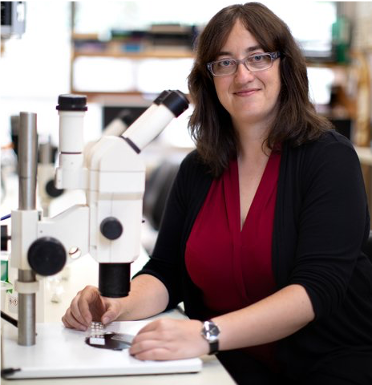Name: Graziana Gatto
Hometown: Ceraso, Italy
Lab: Molecular Neurobiology Laboratory of Martyn Goulding
Lab website: http://goulding.salk.edu/
Hobbies: Photography, Travel, Cooking, Soccer
What do you study? We study how the neurons in the spinal cord function to make us walk, run, scratch, and how they make us feel hot, cold, touched and itchy. We remove or activate different types of neurons and analyze how these changes cause disruption in the way mice feel or move. At the same time, we also look at how these different neurons are connected with each, to understand how they work together to produce the correct movement in response to each sensation, like scratching when itchy or stop touching a hot stove.
Why is it important? If we know how the spinal cord works, we can repair when it stops functioning. Some diseases (neuropathies) cause the spinal cord to be unable to feel touch, itch, temperature, and if we know which neurons are responsible for feeling these sensations we can find ways to repair or replace them. Accidents, like car crashes, falls, and neurological conditions, like multiple sclerosis, ALS, affect the ability of people to move, and once more knowing which are the neurons activate the muscles, will help generate rehabilitation therapies.
What piqued your interest in science? Mostly the curiosity to understand how the human body works, to discover its parts, how they are connected and how they work together. I have always wanted to know why, why our legs move the way they do, why some people are better at playing sports or musical instrument, and why our body sometimes stops to function.
What do you like about being a scientist? Because I am passionate about, my curiosity stayed the same since the day I started working in the lab, and try to answer the why questions it is what makes me happy every day.
What are 5 general vocabulary terms someone should know going into your field of science?
Neuron, Optogenetics, Spinal Cord, Reflex, Behavior
What are 5 specific vocabulary terms someone should know about your research?
Genetics, Gene, DNA, Microscope, Fluorescence
Here are a couple of sneak peeks!

